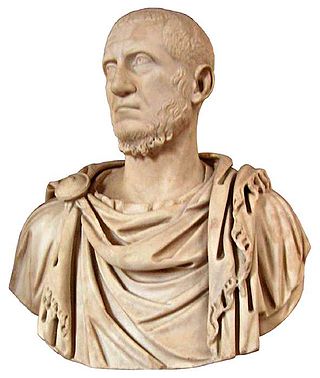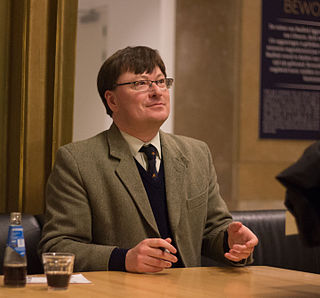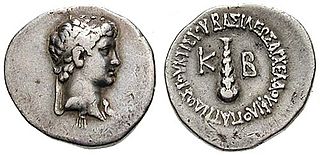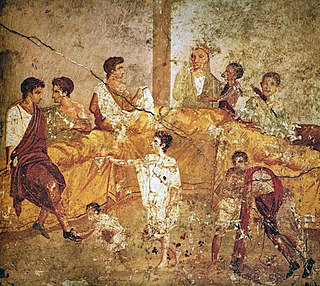Related Research Articles

Marcus Claudius Tacitus was Roman emperor from 275 to 276. During his short reign he campaigned against the Goths and the Heruli, for which he received the title Gothicus Maximus.

The Crisis of the Third Century, also known as the Military Anarchy or the Imperial Crisis (235–285), was a period in Roman history during which the Roman Empire had nearly collapsed under the combined pressure of repeated foreign invasions, civil wars and economic disintegration. At the height of the crisis, the Roman state had split into three distinct and competing polities.

Ptolemy of Mauretania was the last Roman client king and ruler of Mauretania for Rome. He was the son of Juba II, the king of Numidia and a member of the Berber Massyles tribe, as well as a descendant of the Ptolemaic dynasty via his mother Cleopatra Selene II.

Gaius Messius Quintus Trajanus Decius, known as Trajan Decius or simply Decius, was Roman emperor from 249 to 251.
Flavius Aetius was a Roman general and statesman of the closing period of the Western Roman Empire. He was a military commander and the most influential man in the Empire for two decades (433–454). He managed policy in regard to the attacks of barbarian federates settled throughout the West. Notably, he mustered a large Roman and allied (foederati) army in the Battle of the Catalaunian Plains, ending a devastating invasion of Gaul by Attila in 451, though the Hun and his subjugated allies still managed to invade Italy the following year, an incursion best remembered for the ruthless Sack of Aquileia and the intercession of Pope Leo I.

Stilicho was a military commander in the Roman army who, for a time, became the most powerful man in the Western Roman Empire. He was of Vandal origins and married to Serena, the niece of emperor Theodosius I. He became guardian for the underage Honorius. After nine years of struggle against barbarian and Roman enemies, political and military disasters finally allowed his enemies in the court of Honorius to remove him from power. His fall culminated in his arrest and execution in 408.
Howard Hayes Scullard was a British historian specialising in ancient history, notable for editing the Oxford Classical Dictionary and for his many published works.

Adrian Keith Goldsworthy is a British historian and novelist who specialises in ancient Roman history.

In modern historiography, ancient Rome encompasses the founding of the Italian city of Rome in the 8th century BC, the Roman Kingdom, Roman Republic, Roman Empire, and the collapse of the Western Roman Empire in the 5th century AD.

The causes and mechanisms of the fall of the Western Roman Empire are a historical theme that was introduced by historian Edward Gibbon in his 1776 book The History of the Decline and Fall of the Roman Empire. Though Gibbon was not the first to speculate on why the empire collapsed, he was the first to give a well-researched and well-referenced account of the event, and started an ongoing historiographical discussion about what caused the fall of the Western Roman Empire. The traditional date for the end of the Western Roman Empire is 476 when the last Western Roman Emperor was deposed. Many theories of causality have been explored. In 1984, Alexander Demandt enumerated 210 different theories on why Rome fell, and new theories have since emerged. Gibbon himself explored ideas of internal decline and of attacks from outside the empire.

Archelaus was a Roman client prince and the last king of Cappadocia. He was also husband of Pythodorida, Queen regnant of Pontus.

Junia Claudilla, also known as Junia Claudia, was the first wife of the Roman Emperor Caligula before he came to power.
Walter Andre Goffart is a German-born American historian who specializes in Late Antiquity and the European Middle Ages. He taught for many years in the history department and Centre for Medieval Studies of the University of Toronto (1960–1999), and is currently a senior research scholar at Yale University. He is the author of monographs on a ninth-century forgery, late Roman taxation, four "barbarian" historians, and historical atlases.
Marcus Aemilius Lepidus (6–39) was a Roman Patrician and the husband of the emperor Caligula's younger sister Julia Drusilla.
Marcus Junius C. f. M. n. Silanus was an Ancient Roman senator who became suffect consul in AD 15. His daughter Junia Claudilla was the first wife of Emperor Caligula.

Byzantine Empire under the Constantinian and Valentinianic dynasties was the earliest period of the Byzantine history that saw a shift in government from Rome in the West to Constantinople in the East within the Roman Empire under emperor Constantine the Great and his successors. Constantinople, formally named Nova Roma, was founded in the city of Byzantium, which is the origin of the historiographical name for the Eastern Empire, which self-identified simply as the "Roman Empire".
Flavius Areobindus was a general of the Eastern Roman Empire, second generation of Barbarian incorporation of Gothic origin, who became commander in chief of the East. He led battles and conquests on multiple fronts of the allegedly stable Eastern Roman Empire. In addition, due to his military efforts, he was awarded the consulate in 434 along with his co-consul, Aspar. He would hold his magister millitum position until his death in 449. He is the beginning of a distinguished line of nobles through his group’s admission into the Eastern Roman Empire.
Roman infantry tactics are the theoretical and historical deployment, formation, and manoeuvres of the Roman infantry from the start of the Roman Republic to the fall of the Western Roman Empire. The focus below is primarily on Roman tactics: the "how" of their approach to battle, and how it stacked up against a variety of opponents over time. It does not attempt detailed coverage of things like army structure or equipment. Various battles are summarized to illustrate Roman methods with links to detailed articles on individual encounters.

The Roman people was the collective body of Roman citizens (Latin: Rōmānī; Ancient Greek: Ῥωμαῖοι Rhōmaîoi) during the Roman Kingdom, the Roman Republic, and the Roman Empire. This concept underwent considerable changes throughout the long history of the Roman civilisation, as its borders expanded and contracted. Originally only including the Latins of Rome itself, Roman citizenship was extended to the rest of the Italic peoples by the 1st century BC and to nearly every subject of the Roman empire in late antiquity. At their peak, the Romans ruled large parts of Europe, the Near East, and North Africa through conquests made during the Roman Republic and the subsequent Roman Empire. Altough defined primarily as a citizenship, "Roman-ness" has also and variously been described as a cultural identity, a nationality, or a multi-ethnicity that eventually encompassed a vast regional diversity.
Hyun Jin Kim is an Australian academic, scholar and author.
References
- 1 2 3 "Arther Ferrill." Contemporary Authors Online. Detroit: Gale, 2002. Retrieved via Biography in Context database, 2017-07-09.
- ↑ McLemmee, Scott (September 27, 2002). "Rehabilitating Livia: By focusing on the biases of ancient historians, a scholar provides an antidote to old views of Roman rulers" (preview only; subscription required). The Chronicle of Higher Education .